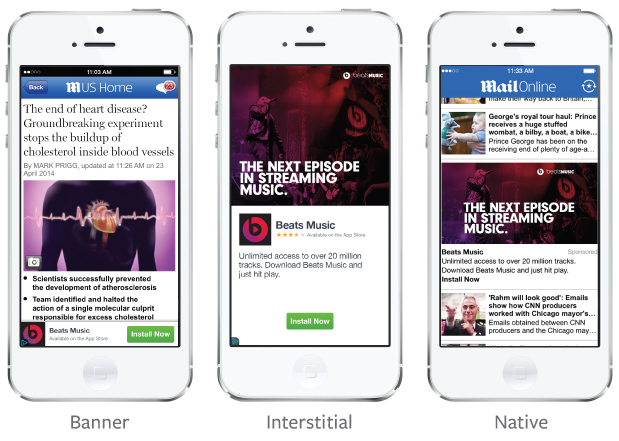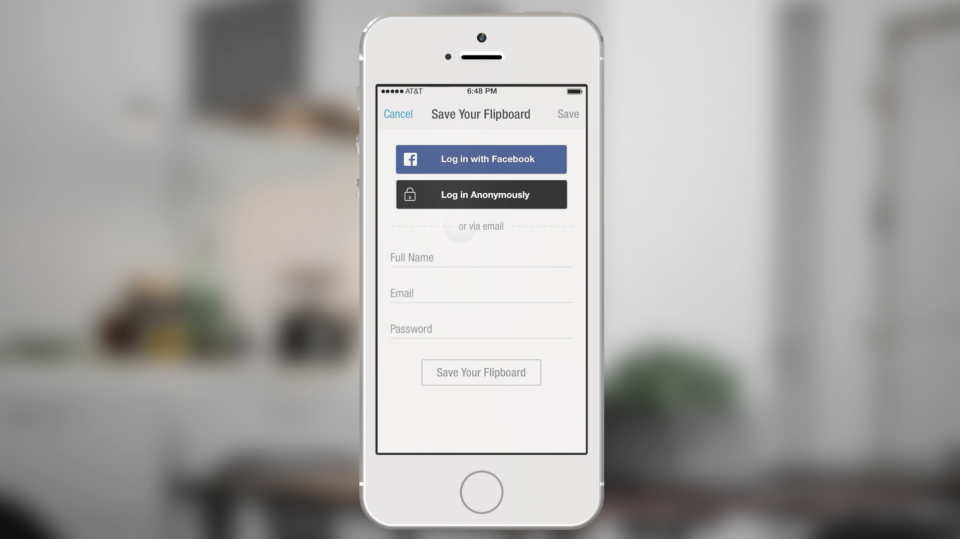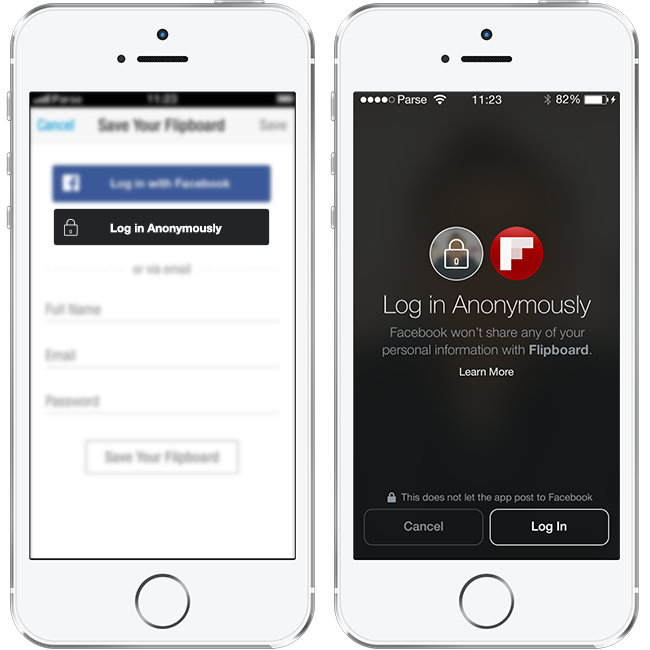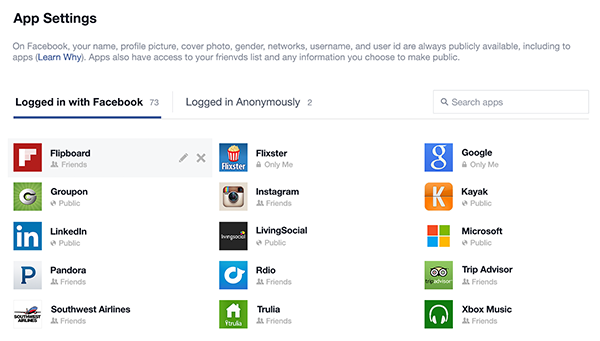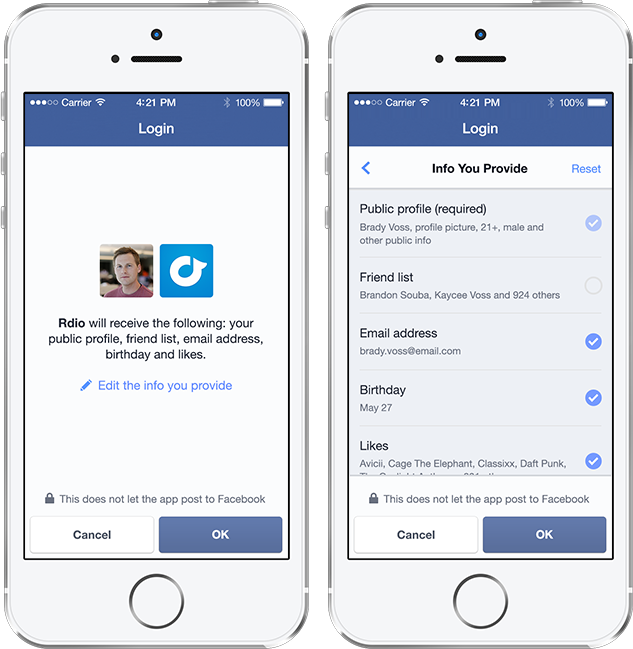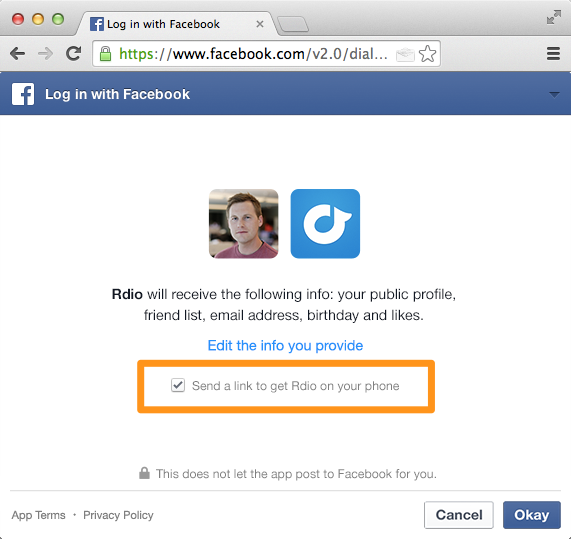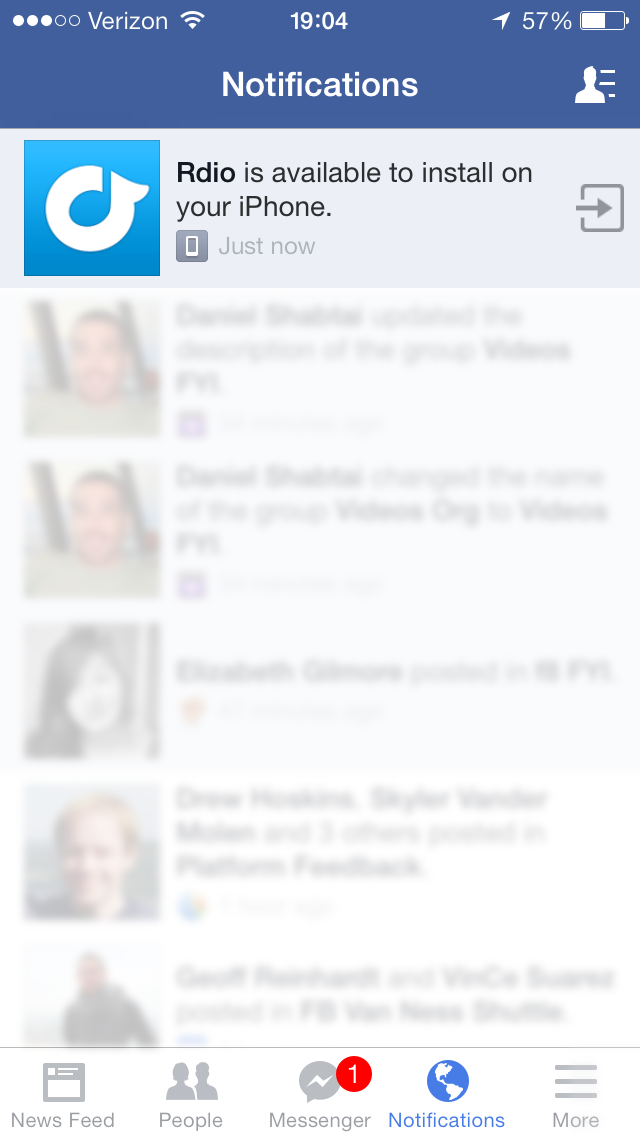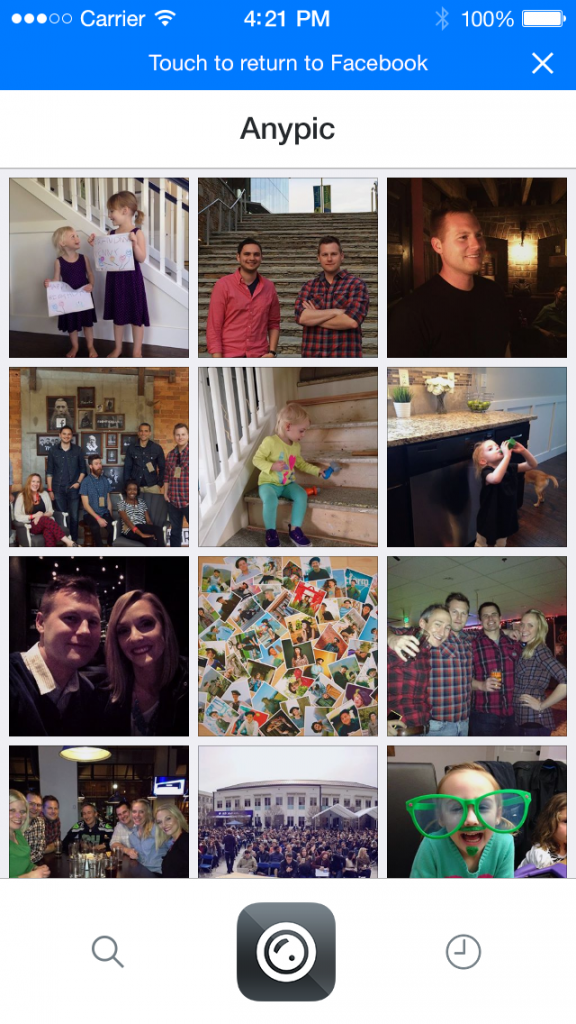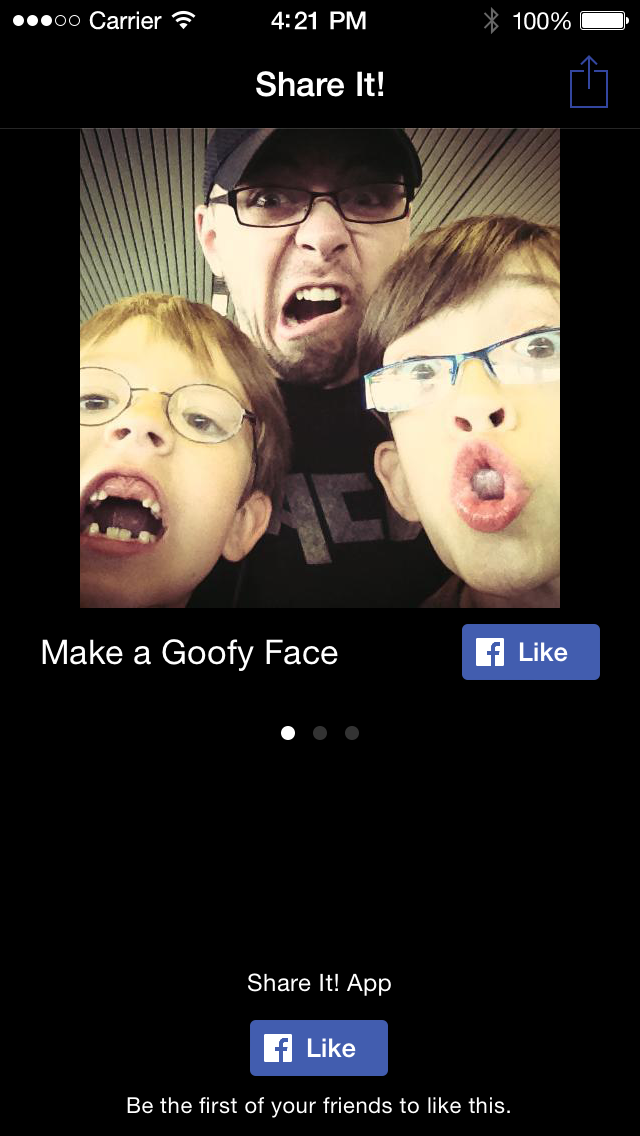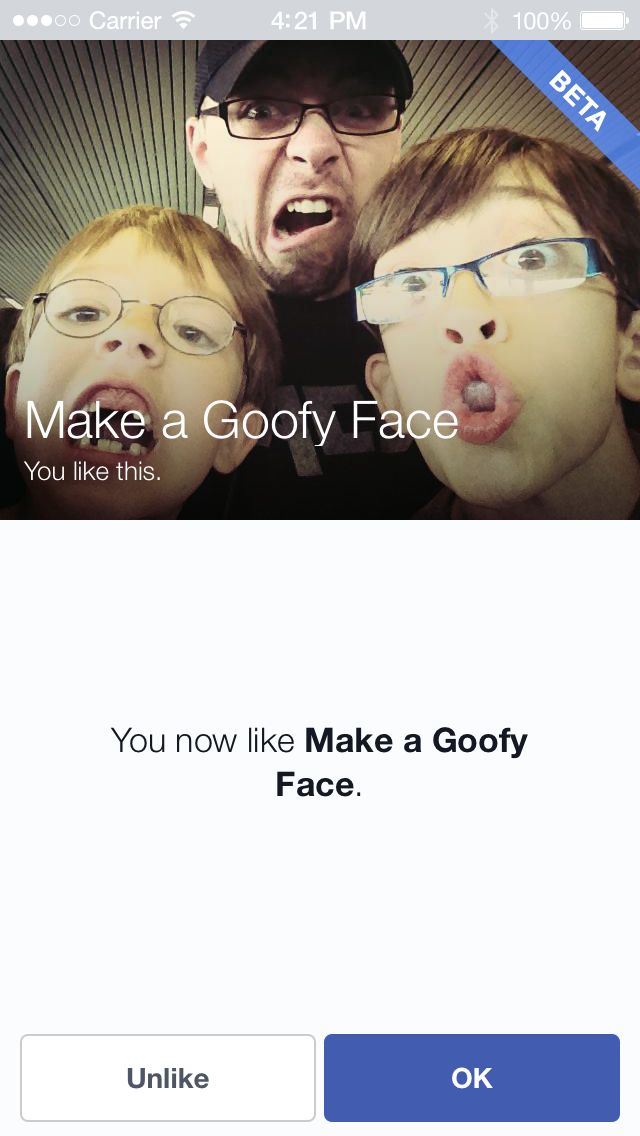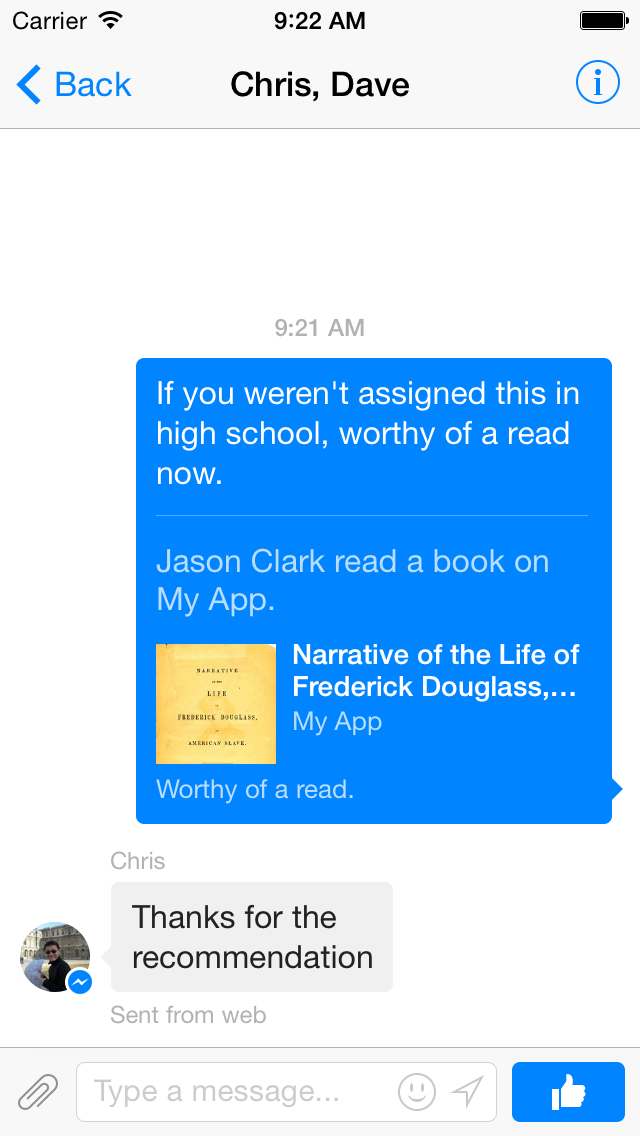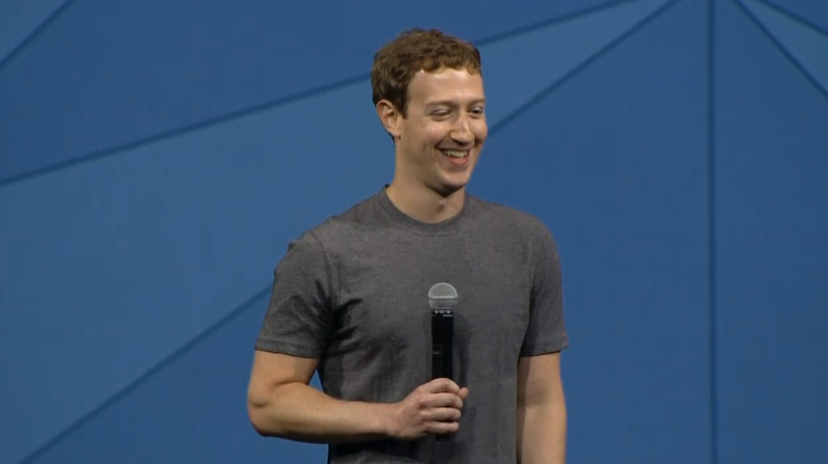Facebook is holding its f8 developer conference in San Francisco today, with the CEO and co-founder Mark Zuckerberg having taken the stage to share a whole bunch of interesting feature and platform announcements meant to empower programmers to build more engaging apps and help take the platform to the next level.
The social networking behemoth has recently entered fitness-tracking space by acquiring the popular Moves app and now claims 1.3 billion monthly active users.
Although the figure eclipses Instagram, WhatsApp and Twitter monthly actives combined – Instagram crossed 200 million monthly users and WhatsApp has half a billion monthly actives – Facebook remains laser-focused on reducing friction when it comes to sharing data between apps, liking stuff on mobile, jumping between mobile apps and the web, serving more relevant advertising in way more places than before and more…
Audience Network
First things first: Watch out, Google, because Facebook has a mobile ad network of its own now. But wait, haven’t they been showing ads for years now?
They have, but now developers can monetize their mobile apps in whole new ways using Facebook Audience Network to extend advertisers’ Facebook campaigns into their mobile apps.
It’s basically Facebook’s version of Google AdWords, only much better and more powerful because the system leverages Facebook’s rich knowledge graph of its vast user base.
Facebook explains:
Facebook ads work because they’re personal, relevant and easy to measure on both desktop and mobile. The Audience Network brings these same powerful features to additional app-based mobile experiences, giving marketers even more scale for their Facebook campaigns.
Advertisers who run News Feed ads on Facebook only need to flip a switch in the ad interface to make their campaigns available across mobile applications. Ads in the Audience Network can be served in three basic formats: banner, interstitial and native.
The system uses the same targeting engine powering regular Facebook ads today so marketers can precisely define their custom audiences, core audiences and lookalike audiences.
Anonymous Login
With advertising off our back, it’s time to turn our attention to the Facebook Connect platform which now supports a new Anonymous Login feature that lets users log in to mobile applications and web sites without sharing their personal information from Facebook.
The new ‘Log in Anonymously’ button, which can be seen below, will make it possible to try out apps without handing over any information about yourself.
Anonymous Login lets people log in to apps so they don’t have to remember usernames and passwords, but it doesn’t share personal information from Facebook. People can decide later if they want to share any additional information, once they understand more about the app.
The feature is currently being tested with select developers.
Facebook will open up Anonymous Login to more developers “in the coming months,” as per this post on the Facebook Developers blog.
This is Anonymous Login in action.
Moreover, standard Facebook Login has received the option to pick and choose what information apps get. Also, the company will be now approving any permissions that apps request beyond public profile, e-mail and friend list to quickly eradicate stealthy Facebook apps that steal personal information.
Akin to standard Facebook Login, logging in with Anonymous Login on one device lets you continue your experience across other devices. “It’s the best combination of convenience and privacy,” claims Facebook.
A redesigned app control panel, pictured below, will make it easy to tick off default permissions for apps on the initial set-up.
Oh, and standard Facebook Login – used over ten billion times last year alone – now lets you selectively decide what to share with apps. As pictured below, you could opt to share your email address with an app, but not your birthday, and so forth.
The revamped Facebook Login won’t post to Facebook without permission and – perhaps most crucially – apps you approve to use your Facebook information can no longer retrieve data from friends of friends, like before.
Here’s the much improved Facebook Login in action.
Send To Mobile
What else? How about a way to send an app to your iPhone after visiting a web site and logging in with Facebook? That’s what Send To Mobile does for you.
Developers who operate a website that has a mobile app available can use Send To Mobile to send an optional app install notification to a website visitor who logs in with Facebook.
Tapping the notification in Facebook’s iOS app will then take a visitor to the App Store to download the app. Depending on your Facebook notification settings, these alerts can also appear in the iOS Notification Center.
App Links
This is Facebook’s answer to deep linking on mobile.
Facebook said that more than twenty top mobile apps have partnered with them “to make all kinds of great content available for linking.”
Billed as an open-source, cross-platform solution for app-to-app linking, App Links allows developers to control what happens when users click on their content in mobile and send people easily out of their app and directly into another.
Publishing App Link metadata is as simple as adding a few lines to the tag in the HTML for your content. Apps that link to your content can then use this metadata to deep-link into your app, take users to an app store to download the app, or take them directly to the web to view the content.
And here’s what deep linking between apps looks like.
Note the blue ‘Touch to return to Facebook’ bar at the top – you must have seen it already in Facebook’s iOS app that recently killed the chat feature.
Check out Facebook’s App Links intro video.
https://vimeo.com/93018959
Notably absent from the applinks.org supporter list: Google and Twitter.
Mobile Like
Up next, a native Like button embeddable into mobile applications to make it easy to like the Pages or individual apps’ content.
An example app with the mobile Like button is illustrated below.
However, Facebook’s implementation appears half-baked as tapping the in-app Like button yanks you out of the app and launches Facebook’s mobile client to present the actual Like dialog, as illustrated below.
When one of the buttons is tapped, you will be sent back to your app which will then update the state of its embedded Like button along with the like count and/or sentence, if present.
Like button is launching on iOS first. An Android version is “coming soon.”
Message Dialog
Another newsworthy new feature: Message Dialog in iOS.
This will permit developers to write mobile software which allows users to message in-app content and links using Facebook’s Messenger iOS app, with the content or link appearing directly in the person’s conversation thread like organic content.
I’m liking this capability a lot!
A messaged item can take three general shapes: a link, a photo (or photos) and a structured Open Graph story (i.e. a story about cooking a meal, running a race or reading a book).
Last but not least, reflecting on his beginnings Zuck remarked that Facebook turned 10, about the same time he met his wife. He also expressed embarrassment about turning 30.
And a lot more
A whole bunch of other technical announcements, new advertising initiatives (Facebook’s bread and butter) and useful marketing resources have been revealed at Facebook’s developer-focused event that I haven’t mentioned here.
If you’re a developer or just a curious type, you can check out all the announcements over at the Facebook News center. Die-hards can watch a replay of the live stream from Facebook’s developer conference online.
Did Facebook’s latest strides in privacy impress you?
Sound off in the comments below.
In the meantime, Twitter finds itself in danger of being crushed by Facebook.

